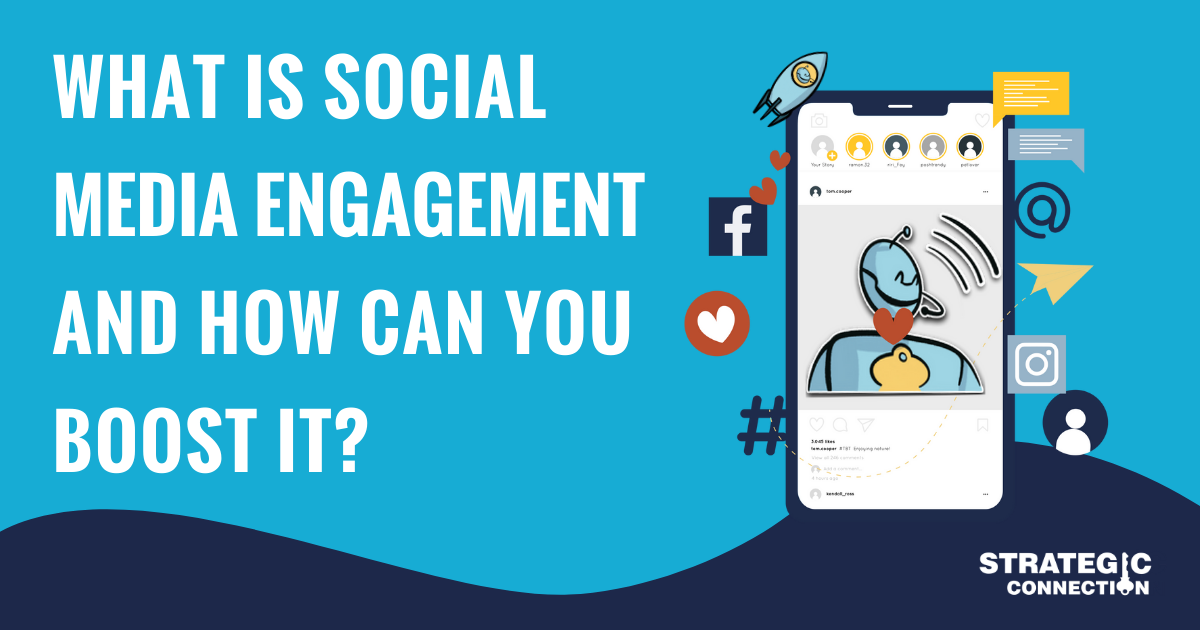
What is social media engagement and how can you boost it?
Posted by: Ali Jaffar Zia
February 18, 2023
Social media engagement is interacting with others on social media platforms to build relationships and create a community. It can be boosted by creating interesting content, participating in conversations, and using effective marketing tactics.
While performing social media engagement, the goal is to develop a creative, engaging way to summarize the input so that it's more interesting. Social media engagement can be important for businesses - it helps them connect with customers and create relationships. It can also help promote products or services, leading to increased sales. So keeping social media active and exciting is vital!
Which social media site is best for promoting my business?
There is no one-size-fits-all answer to this question. The best social media site for promoting your business will vary depending on your specific business and target audience. However, some of businesses' most popular social media platforms include Facebook, Twitter, LinkedIn, and Instagram.

10 tips for creating a successful social media campaign
Running a successful social media campaign isn't accessible anymore. There are a bunch of things you need to make sure of. Here are 10 quick tips to ensure the effectiveness of your campaign.
- 1. Define your goals
- 2. Research your audience
- 3. Create valuable content
- 4. Plan and design your campaign
- 5. Optimize for social media platforms
- 6. Use visuals to enhance your message
- 7. Leverage influencers and brand advocates
- 8. Promote across channels
- 9. Analyze and optimize results
- 10. Repeat!
How to measure the effectiveness of your social media campaigns
Measuring the effectiveness of social media campaigns is essential to understanding if they are working or not. It can help identify areas of improvement and track progress over time. To do this, a few key metrics should be tracked and monitored.
First, reach is an important metric to measure success. Reach tells you how many people were exposed to your content or page during a specific period of time. This will give you an idea of how far your messages have spread and which channels or platforms are most effective for getting your message out there.
Engagement is another important metric to measure success with social media campaigns. This includes likes, shares, comments, retweets, etc., which indicate both the engagement level and sentiment surrounding your content. Tracking this can help you figure out what types of content resonates most with your target audience so you can create more similar pieces in the future.
Another helpful metric to measure success is conversions or actionable goals achieved from social media campaigns. This could be anything from downloads, sign-ups, purchases, newsletter subscriptions, etc., depending on the objectives of your campaign. Tracking this will tell you which strategies are generating the most leads or sales for your business so that you can focus more on them moving forward.
Finally, website analytics tools such as Google Analytics can play an important role in measuring success with social media campaigns by providing detailed insights into how users interact with your website and content after arriving via social channels or ads. These insights will help inform future marketing and advertising decisions regarding optimizing messaging and targeting for better results down the line.
Tracking these metrics periodically will give you a sense of how successful (or unsuccessful) your social media campaigns are performing so that adjustments can be made for maximum efficiency and impact going forward.

Should my business be on more than one social media platform?
Having a presence on multiple social media platforms can benefit businesses, particularly those trying to reach a wide range of customers. Each platform has its own unique capabilities and benefits, so it’s important to consider the advantages of each.
Depending on the type of business, it could make sense to have a presence on multiple social media platforms. For example, if you’re running an eCommerce store, you may want to be present on both Facebook and Instagram to create visibility for your products across both platforms. Similarly, if you’re running a B2B business, LinkedIn may be just as important as Twitter for connecting with other industry players.
The key is to pick the right channels based on your target audience and goals. When deciding which social media networks your business should be actively using, ask yourself what kind of content works best within each platform and how much time and resources you have available for managing them.
When done right, having a presence on multiple social media platforms allows you to reach more people in different contexts and tailor content according to each platform’s capabilities and features. By diversifying across multiple networks, brands can also benefit from increased exposure which could lead to new opportunities such as partnerships or collaborations with influencers or other businesses.
Furthermore, having an effective strategy for monitoring activity across multiple accounts can help ensure that messages are consistent throughout all channels and that potential customers are being reached effectively regardless of which platform they are most active on. This is especially important when engaging with customers directly to stay responsive and provide quality customer service.
Overall, having a presence on more than one social media platform provides businesses with increased visibility while allowing them to scale their efforts more efficiently than if they were limited to just one channel. As such, it may make sense for many businesses looking to maximize their digital presence and effectively reach out beyond a single network – provided they have the resources available both time-wise and personnel-wise – to leverage the potential of today's multi-faceted online world fully.

The final word on Social Media Engagement Tips
Social media engagement is a great way to connect with your audience and build an online presence for your brand. To maximize the potential of these platforms, however, it is important to employ strategies that will help you get the most out of them. Here are some tips for increasing your social media engagement:
1. Post regularly.Consistency is key in social media engagement as it allows you to stay on top of mind with your followers and keep them engaged. Aim to post content daily, or at least several times a week - this will show that you are actively involved in your accounts and encourage your followers to interact with you more often.
2. Utilize stories.Stories are incredibly popular on many social media platforms, such as Instagram and Facebook, so take advantage of them! Through stories, you can share exciting updates about new products or services, or even post entertaining content that will grab people's attention and draw them in. You can also use stories to ask questions or conduct polls to gain valuable insights into your followers' thoughts about various topics related to your brand or business.
3. Share user-generated content (UGC).People love seeing content created by other users, which is why sharing UGC effectively increases engagement on social media platforms. When people see themselves or their peers featured in posts created by the brands they follow, they’re likely to feel appreciated and more likely to engage with the brand’s other content going forward.
4. Host giveaways/contests.Giveaways and contests are another great way to increase social media engagement. They incentivize people to interact with your brand’s posts to enter for a chance at winning something cool! Whether it’s an exclusive product launch or just a fun competition like “caption this photo,” – hosting events like these will help you boost engagement levels significantly on social media platforms.
5. Respond/interact quickly with comments & messages from followers.Taking the time to respond quickly and thoughtfully when someone leaves a comment or message on one of your posts shows that you value their opinion – which leads us to the right to our next tip.
6. Acknowledge & appreciate feedback from followers.Whether it’s positive or negative feedback, acknowledging it shows that you take customer satisfaction seriously and encourages further engagement from others who may have similar experiences but may not have spoken up before now because they didn't think their voices would be heard. This creates an environment where customers feel valued and gives them the incentive to engage with future posts by helping spread awareness around upcoming promotions, events, etc., due to the trust gained through communication between both parties!
If you are looking for more effective ways to boost your social media, connect with our full services marketing firm! Our experienced marketers at Strategic Connection would love to chat with you and learn more about your business. Learn more and get a free consultation today!
Learn more about Strategic Connection's Social Media Marketing Services.


